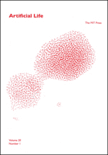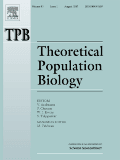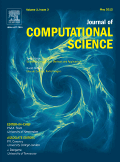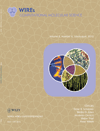
ARTIFICIAL LIFE
Scope & Guideline
Pioneering Research in Life-inspired Technologies
Introduction
Aims and Scopes
- Artificial Life and Evolutionary Dynamics:
The journal emphasizes research on artificial life forms and their evolutionary processes, often employing computational models to simulate and understand the dynamics of life-like behaviors. - Self-Organization and Complexity:
A significant focus is placed on self-organization phenomena within artificial systems, exploring how complex behaviors emerge from simple rules or interactions. - Ethics and Philosophy of Artificial Life:
The journal addresses the ethical implications and philosophical questions surrounding artificial life, including moral obligations toward synthetic entities and the nature of consciousness. - Interdisciplinary Approaches:
Research often spans multiple disciplines including biology, computer science, cognitive science, and robotics, fostering a comprehensive understanding of life and intelligence. - Cultural and Social Dynamics in Artificial Systems:
Investigations into how cultural and social dynamics can influence the evolution of artificial agents and systems are highlighted, reflecting the interplay between technology and society.
Trending and Emerging
- Open-Ended Evolution:
There is a marked increase in research dedicated to open-ended evolution, exploring how systems can evolve without predetermined limits, which is crucial for understanding real-life evolutionary processes. - Agent-Based Modeling and Social Dynamics:
Emerging themes around agent-based modeling have become prominent, particularly in studying social interactions, cooperation, and competition among artificial agents, reflecting a deeper investigation into collective behaviors. - Ethics of Artificial Life:
The ethical implications of artificial life and its societal impact have gained significant attention, highlighting the need for moral frameworks as artificial entities become more integrated into society. - Cultural Evolution and Artificial Systems:
Research exploring the intersection of cultural evolution and artificial life is on the rise, emphasizing how cultural dynamics can shape the development and behavior of artificial systems. - Integration of AI and Biological Principles:
There is a growing trend towards integrating AI techniques with biological principles, aiming to create more lifelike and adaptable artificial systems that mirror biological processes.
Declining or Waning
- Traditional Biological Modeling:
There appears to be a decreasing emphasis on traditional biological modeling, as more recent publications lean towards computational and abstract models rather than direct biological analogs. - Static vs. Dynamic Systems:
Research focusing on static models of artificial life has become less frequent, with a shift towards dynamic and adaptive systems that better represent real-world complexities. - Basic Mechanisms of Artificial Intelligence:
The exploration of fundamental AI mechanisms has waned, possibly due to a saturation of basic research and a shift towards more complex interactions and emergent behaviors.
Similar Journals

Journal of Advanced Computational Intelligence and Intelligent Informatics
Connecting Minds in Computational TechnologiesThe Journal of Advanced Computational Intelligence and Intelligent Informatics, published by FUJI TECHNOLOGY PRESS LTD, stands as a pivotal platform in the fields of Artificial Intelligence, Computer Vision, and Human-Computer Interaction. Established in 1997, this Open Access journal has been providing accessible insights into the latest advancements in computational intelligence and informatics since 2007. With its ISSN 1343-0130 and E-ISSN 1883-8014, this journal invites a diverse readership, including researchers, professionals, and students eager to explore innovative methodologies and applications. Despite its current Q4 ranking in the relevant categories, the journal remains committed to contributing valuable knowledge to the academic community and enhancing the global discourse in computational technologies. With its focus on fostering communication and collaboration among scholars, the journal plays an essential role in driving forward the understanding of intelligent systems and their applications in various domains.

THEORETICAL POPULATION BIOLOGY
Transforming Understanding of Ecological InteractionsTHEORETICAL POPULATION BIOLOGY is a leading academic journal published by Academic Press Inc. Elsevier Science, dedicated to advancing the understanding of population biology through theoretical frameworks and models. With an ISSN of 0040-5809 and an E-ISSN of 1096-0325, this journal has been a cornerstone in its field since its inception in 1970. Recognized for its significant contributions to the study of ecological and evolutionary dynamics, it currently holds a Q2 ranking in the Ecology, Evolution, Behavior and Systematics category as per the 2023 category quartiles. Researchers and professionals alike appreciate its role in disseminating impactful findings, as reflected in its percentile ranking of the 51st in Scopus for the Agricultural and Biological Sciences field. While the journal is not open access, it remains a vital resource for those looking to deepen their knowledge and research in theoretical approaches to population biology, making it an essential read for students, aspiring scientists, and veteran researchers seeking to engage with cutting-edge theoretical developments.

Humana Mente-Journal of Philosophical Studies
Unraveling Linguistic Intricacies and Philosophical InsightsHumana Mente - Journal of Philosophical Studies is a distinguished peer-reviewed publication offering a dynamic platform for scholarly discourse in the fields of philosophy, linguistics, and the history and philosophy of science. Published by EDIZIONI ETS since its inception in 2007, this Open Access journal aims to facilitate the dissemination of high-quality research to a global audience. With its base in Pisa, Italy, Humana Mente addresses the linguistic intricacies and philosophical inquiries of our time and enjoys notable rankings, including Q2 in Philosophy and Linguistics, and Q2 in History and Philosophy of Science in the most recent 2023 category quartiles. The journal's significant impact is highlighted by its robust Scopus rankings, positioning it within the top percentiles across various disciplines. By fostering rigorous debate and innovative ideas, Humana Mente continues to be an invaluable resource for researchers, professionals, and students committed to advancing philosophical thought.

Journal of Computational Science
Fostering Interdisciplinary Dialogue in Computational ResearchThe Journal of Computational Science, published by Elsevier, is a premier academic journal that serves as a vital platform for researchers and professionals in the fields of computer science, modeling, and simulation. With an ISSN of 1877-7503 and an E-ISSN of 1877-7511, this journal focuses on the latest advances in computational methodologies and their applications, fostering interdisciplinary dialogue and collaboration. As of 2023, it holds an impressive Q2 ranking in multiple categories, including Computer Science (miscellaneous), Modeling and Simulation, and Theoretical Computer Science, showcasing its relevance and impact within the scholarly community. The journal features comprehensive research articles, reviews, and case studies that contribute significantly to the understanding and development of computational techniques. With its high standing in Scopus rankings, including a 79th percentile ranking in Mathematics - Modeling and Simulation, the Journal of Computational Science is an essential resource for anyone seeking to advance their knowledge and research in this dynamic field.

Wiley Interdisciplinary Reviews-Computational Molecular Science
Connecting Computational Methods with Molecular BreakthroughsWiley Interdisciplinary Reviews: Computational Molecular Science is a premier journal published by WILEY, dedicated to the intersection of computational techniques and molecular science. Boasting an impressive impact factor and consistently ranking in the Q1 category across several key disciplines including Biochemistry, Computational Mathematics, Computer Science Applications, Materials Chemistry, and Physical and Theoretical Chemistry, this journal plays a crucial role in disseminating high-quality research that bridges multiple fields. With its focus on providing a platform for interdisciplinary dialogue and innovative computational solutions, it serves as an essential resource for researchers, professionals, and students eager to push the boundaries of molecular science. While the journal does not currently offer open access, it remains a vital conduit for scholarly communication, fostering advancements in understanding molecular interactions through computational methods. The journal is based in the United States, contributing to its global outreach and impact in the scientific community.

THEORY IN BIOSCIENCES
Unlocking the Complexity of Biological SystemsTHEORY IN BIOSCIENCES, published by SPRINGER, is a prominent academic journal in the interdisciplinary fields of Applied Mathematics, Ecology, and Statistics. With an ISSN of 1431-7613 and an E-ISSN of 1611-7530, this journal is accessible to a global audience and facilitates Open Access options, ensuring that cutting-edge research reaches its intended audience promptly. Established in 1997 and set to converge into 2024, THEORY IN BIOSCIENCES holds a pivotal role in advancing theoretical and methodological approaches in biosciences, evidenced by its respectable placement in the Q3 quartile within the 2023 category rankings. Its Scopus rankings reflect a growing reputation, particularly in Mathematics and Ecology, making it an essential resource for researchers and professionals seeking to enhance their understanding of complex biological systems and data analysis techniques. Positioned in Germany and powered by SPRINGER's esteemed publishing standards, the journal is dedicated to fostering scholarly communication, offering a platform for innovative research that bridges theoretical frameworks and practical applications.

International Journal of Data Science and Analytics
Advancing the Frontiers of Data Science and AnalyticsInternational Journal of Data Science and Analytics, published by SpringerNature, is a leading peer-reviewed journal dedicated to advancing the fields of data science and analytics. Since its inception in 2016, the journal has become an essential platform for researchers, professionals, and students, promoting the exchange of innovative ideas and cutting-edge research. With an impressive categorization in Q2 across multiple domains including Applied Mathematics, Computational Theory and Mathematics, and Information Systems, it demonstrates a notable impact within the academic community, as reflected by its high rankings in various Scopus categories. The journal emphasizes rigorous methodologies and practical applications of data science, making it a valuable resource for those seeking to enhance their understanding and application of data-driven solutions. Although it currently does not operate as an open-access journal, it is committed to disseminating high-quality research that shapes the future of analytics and computation. The journal's headquarters in Switzerland further enriches its international scope, fostering a global dialogue among scholars and practitioners alike.

ANNALS OF MATHEMATICS AND ARTIFICIAL INTELLIGENCE
Bridging Mathematics and AI for Tomorrow's InnovationsThe ANNALS OF MATHEMATICS AND ARTIFICIAL INTELLIGENCE, published by Springer, is a prominent journal dedicated to exploring the intersection between mathematics and artificial intelligence. With an ISSN of 1012-2443 and an E-ISSN of 1573-7470, this esteemed publication has been at the forefront of groundbreaking research since its inception in 1990, converging its focus to address emerging trends through 2024. Currently categorized in the Q3 quartile for both Applied Mathematics and Artificial Intelligence as of 2023, it holds respectable ranks within Scopus, positioning itself as a vital resource for scholars with a rank of #228 in Applied Mathematics and #217 in the realm of Artificial Intelligence. Notable for its commitment to advancing theoretical and applied methodologies, this journal serves as an indispensable platform for researchers, professionals, and students keen to deepen their understanding and innovate within these domains. Although it does not operate under an open-access model, the journal emphasizes rigorous peer-reviewed scholarship, ensuring that each published article contributes significantly to the global dialogue on number theory, machine learning, and their multifaceted applications.

ANNALS OF THE NEW YORK ACADEMY OF SCIENCES
Cultivating a vibrant community of scientific inquiry.ANNALS OF THE NEW YORK ACADEMY OF SCIENCES, a prestigious publication under WILEY, has been a cornerstone of interdisciplinary research since its inception in 1879, covering a broad spectrum of fields including biochemistry, genetics, neuroscience, and the history and philosophy of science. With an impressive impact factor and categorized as a Q1 journal in key scientific areas, it holds a distinguished place in academic discourse as evidenced by its notable rankings in Scopus, where it claims the top position in the arts and humanities category while also excelling in biochemistry and neuroscience. Although the journal is not open access, it remains vital for researchers seeking to disseminate groundbreaking findings to an engaged scholarly community. The ANNALS not only aims to publish high-quality research but also fosters collaborative exchanges that contribute to the advancement of science and understanding of complex scientific questions.

Computation
Championing rigorous research for a digital future.Computation, published by MDPI, is an esteemed open-access journal that has been contributing to the fields of applied mathematics and computer science since its inception in 2013. With an E-ISSN of 2079-3197, this Swiss-based journal operates under a philosophy of free knowledge dissemination, allowing researchers, professionals, and students globally to access high-quality content without financial barriers. Recognized for its rigorous peer-review process, Computation is currently categorized in the Q2 and Q3 quartiles across significant domains, including Applied Mathematics (#181/635), Theoretical Computer Science (#52/130), and Modeling and Simulation (#138/324). As it converges towards 2024, the journal continues to attract innovative and impactful research aimed at advancing theoretical frameworks and practical applications within these disciplines. Joining the Computation community not only enriches individual research portfolios but also contributes to the broader conversation on computational methodologies and their applications in solving real-world problems.